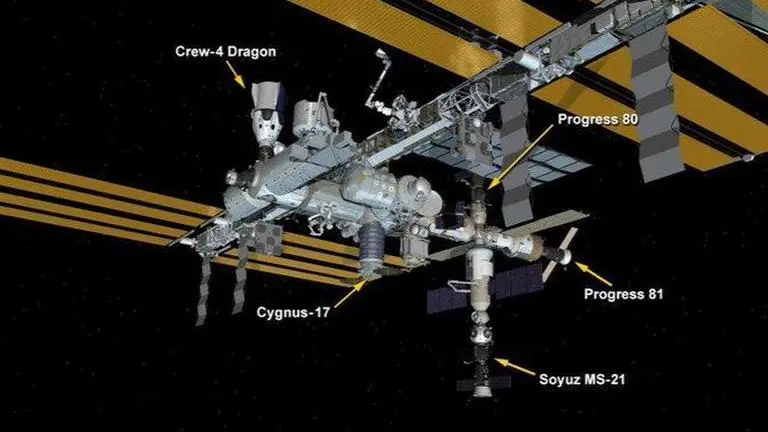Updated 22 June 2022 at 17:23 IST
NASA's plans to maneuver ISS using Cygnus fails; Russian capsule remains only option
NASA recently conducted an orbital maneuver to change the path of the International Space Station (ISS), but the test soon ended due to undisclosed reasons.
- Science News
- 2 min read

NASA recently tried conducting an orbital maneuver to change the path of the International Space Station (ISS), but the test soon ended due to undisclosed reasons. The plan was to fire Northrop Grumman’s Cygnus NG CRS-17 spacecraft's thrusters for five minutes and 1 second to adjust the space station's orbital path. However, NASA stopped the procedure after just five seconds, thus failing to provide the space station an orbital reboost.
What does this failure mean?
.@NASA and @NorthropGrumman controllers are reviewing data after the #Cygnus reboost test was aborted today after five seconds. Next steps are being planned. More... https://t.co/fuzzgn9nE3 pic.twitter.com/8tHzhJ0Dxl
— International Space Station (@Space_Station) June 20, 2022
This failure simply means that the Russian space agency Roscosmos plays an extremely important role in keeping the space station afloat and ensuring it does not run into space debris. This is evident from Roscosmos' last orbital reboost, wherein the Progress 81 spacecraft that fired its engines and allowed the space station to steer away from space debris. Russia conducted the maneuver to avoid the cloud of space junk which was reportedly generated from the anti-satellite missile test it conducted late last year.
In an update following the aborted test, NASA said that its team along with Northrop Grumman "are working on a plan for Cygnus to try another reboost attempt as early as Saturday, June 25 that would lead to Cygnus potentially departing the station next Tuesday, June 28". The agency also said that the cause of failure has been understood and is under review.
Testing new spacecraft for adjusting the space station's path becomes important as Russia recently announced that it will exit the ISS after 2024. In the past, Roscosmos head Dmitry Rogozin had even threatened that the orbital outpost might end up crashing into Earth after Roscosmos' spacecraft will no longer be available for maneuvers.
Advertisement
The latest orbital reboost from Roscosmos was on June 16, wherein the Progress spacecraft fired its engines for 4 minutes and 34 seconds to evade the debris from the destroyed Soviet-era satellite Cosmos-1408. Notably, this was the second time Roscosmos performed a course-correcting maneuver ever since it invaded Ukraine and announced ending ISS operations. Prior to this, Rogozin had announced raising the space station's orbit in late April, to evade a cloud of space junk.
Published By : Harsh Vardhan
Published On: 22 June 2022 at 17:23 IST
